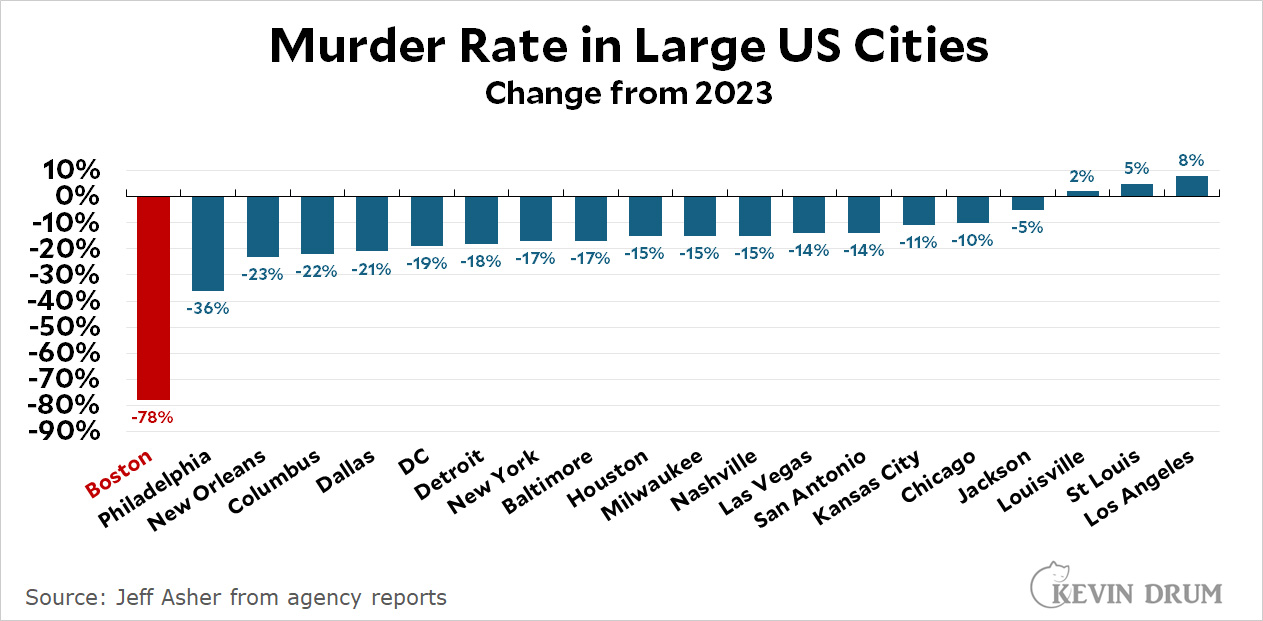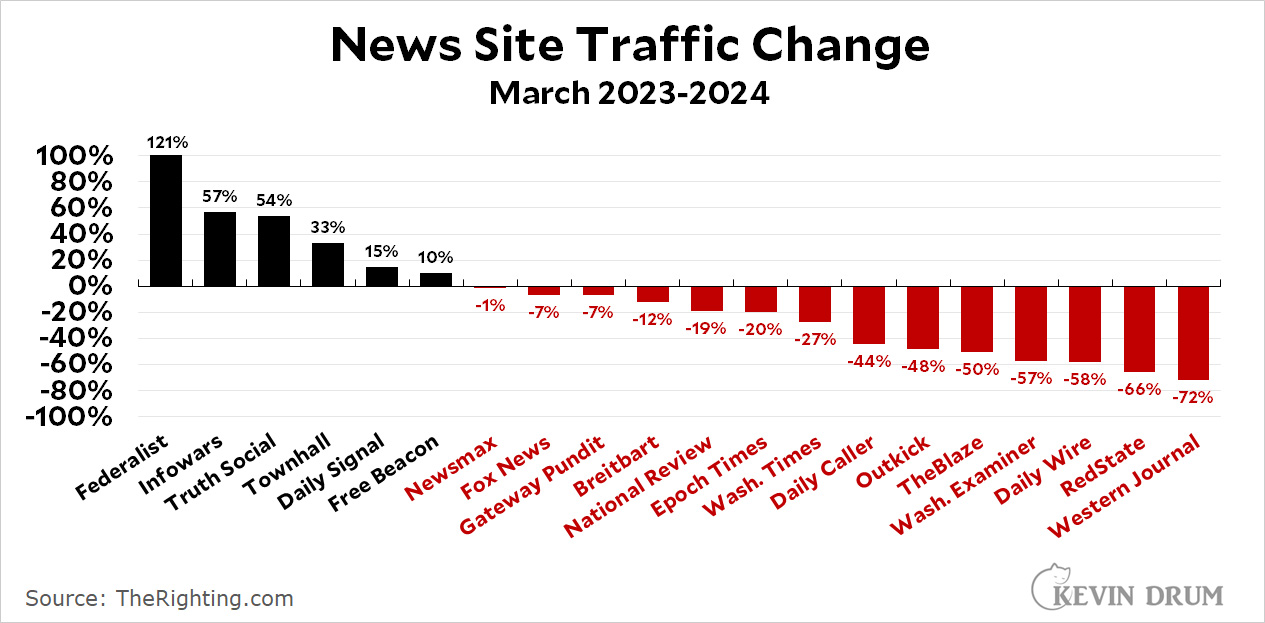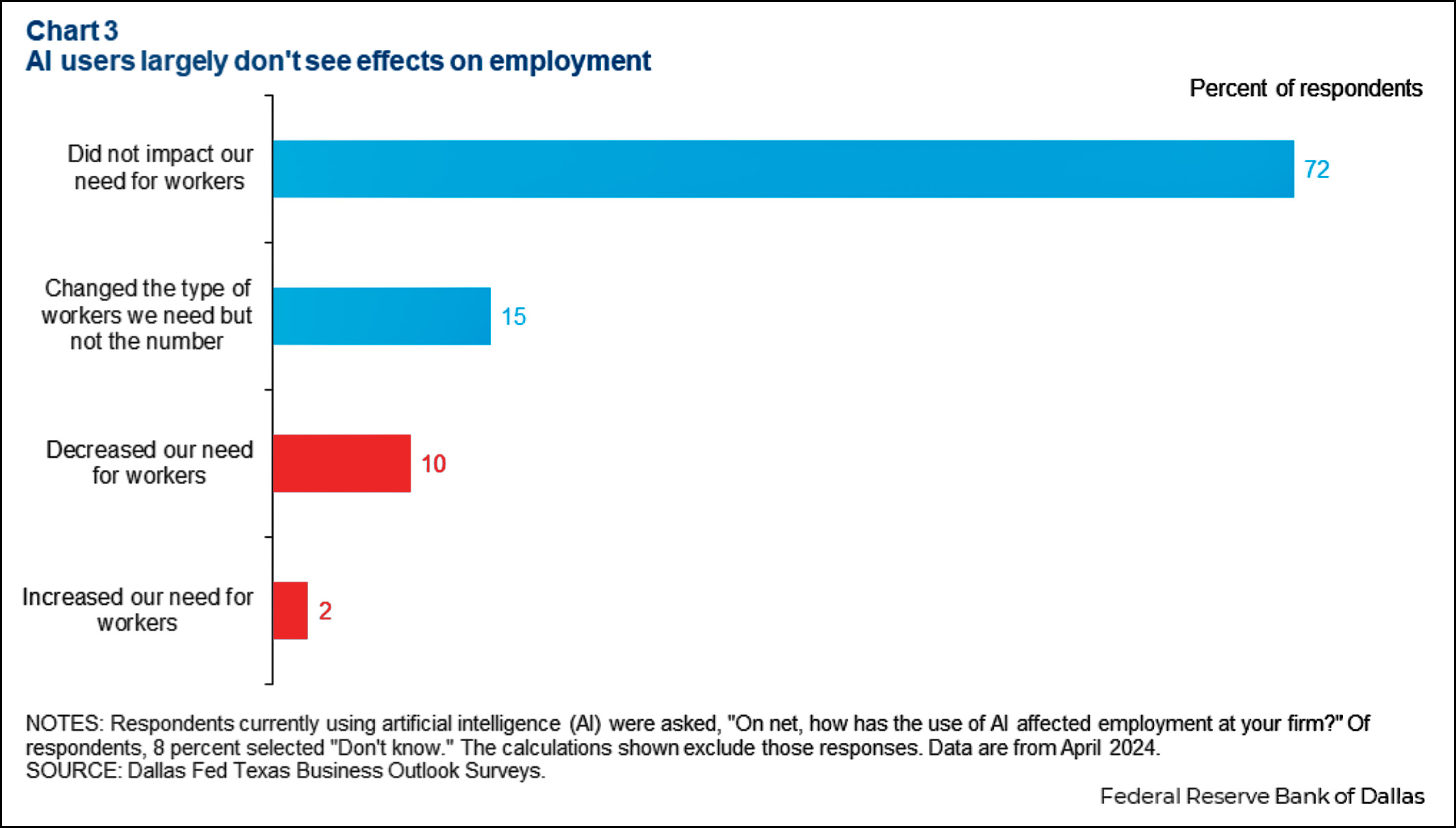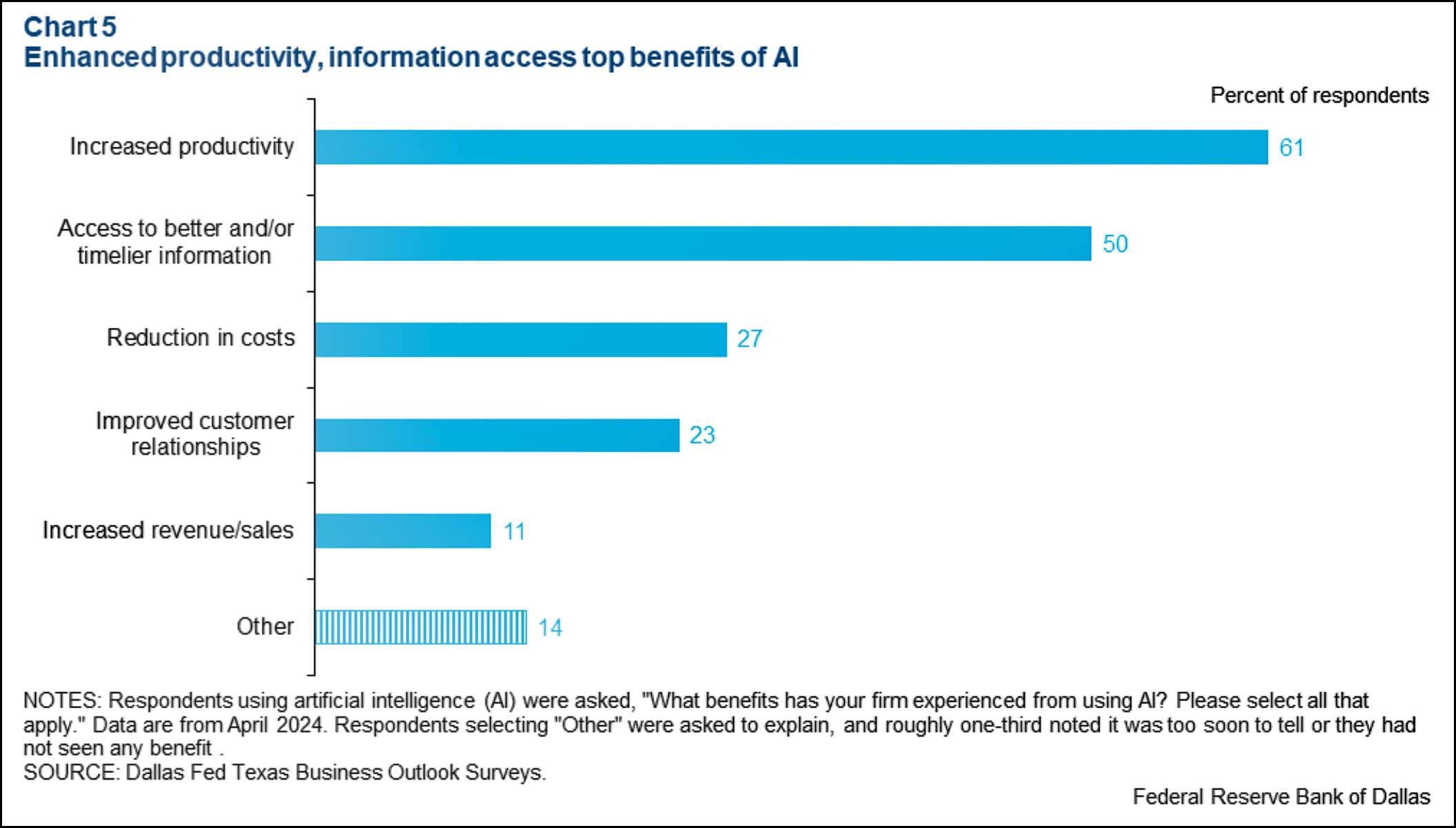The Denver Basic Income Project is a program that gave no-strings money to homeless people in Denver. It ran through most of 2023 and included three randomly chosen groups. Group A got $1,000 per month for 12 months. Group B we don't care about. Group C got $50 per month. Here's how they did on housing after ten months:
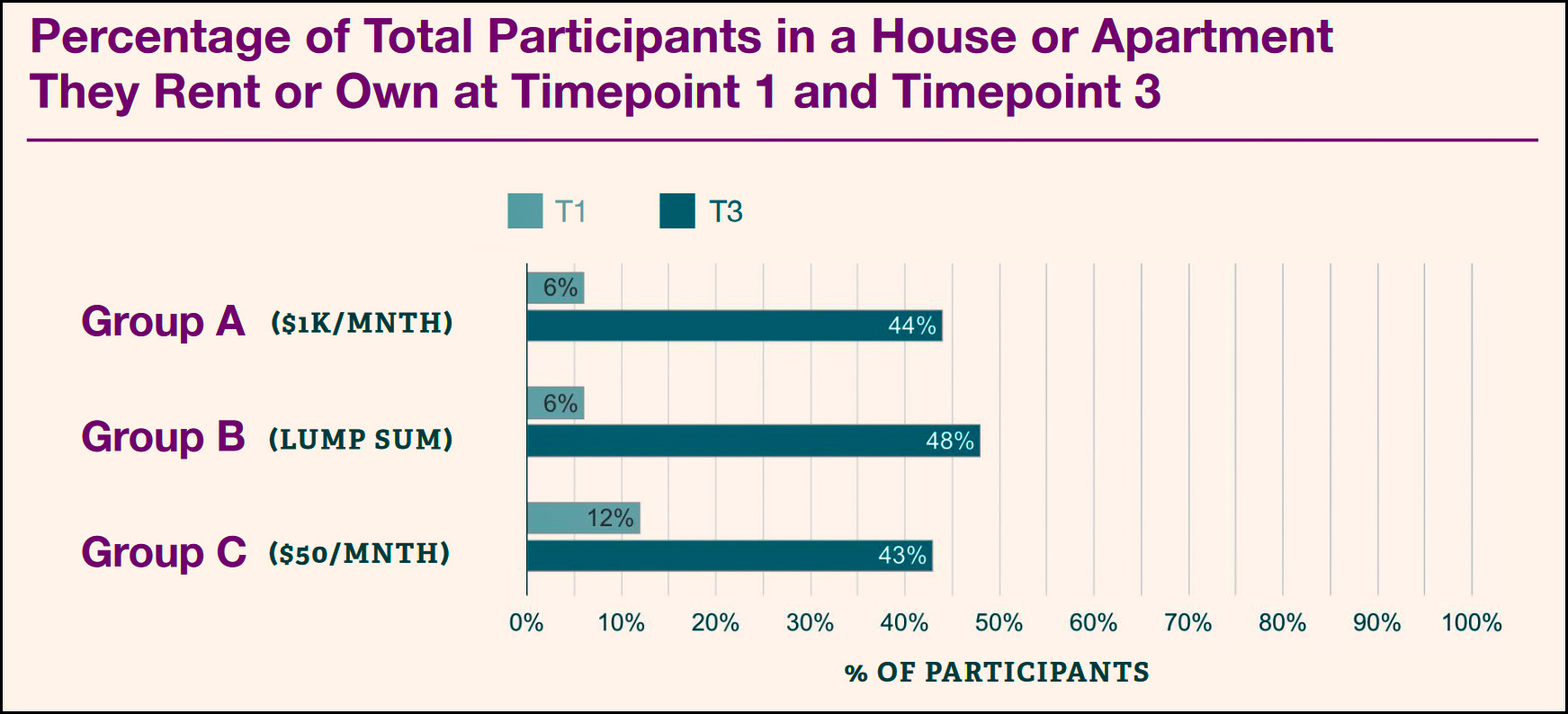 This is the damnedest thing I've ever seen. One way of describing it is to say that the treatment group ($1,000 per month) did barely any better than the control group ($50 per month). So it turns out that giving people money has no effect.
This is the damnedest thing I've ever seen. One way of describing it is to say that the treatment group ($1,000 per month) did barely any better than the control group ($50 per month). So it turns out that giving people money has no effect.
And that's true. But the more important finding, I think, is that giving people $50 per month had a huge impact. How is that possible? This is nowhere near enough money to help someone rent an apartment, and yet rentals went up from 12% to 43%.
In another part of the study, the researchers try to calculate how much the city saved in social services due to the homeless being better off. These exercises are frequently fantasies, but let's take a look anyway:
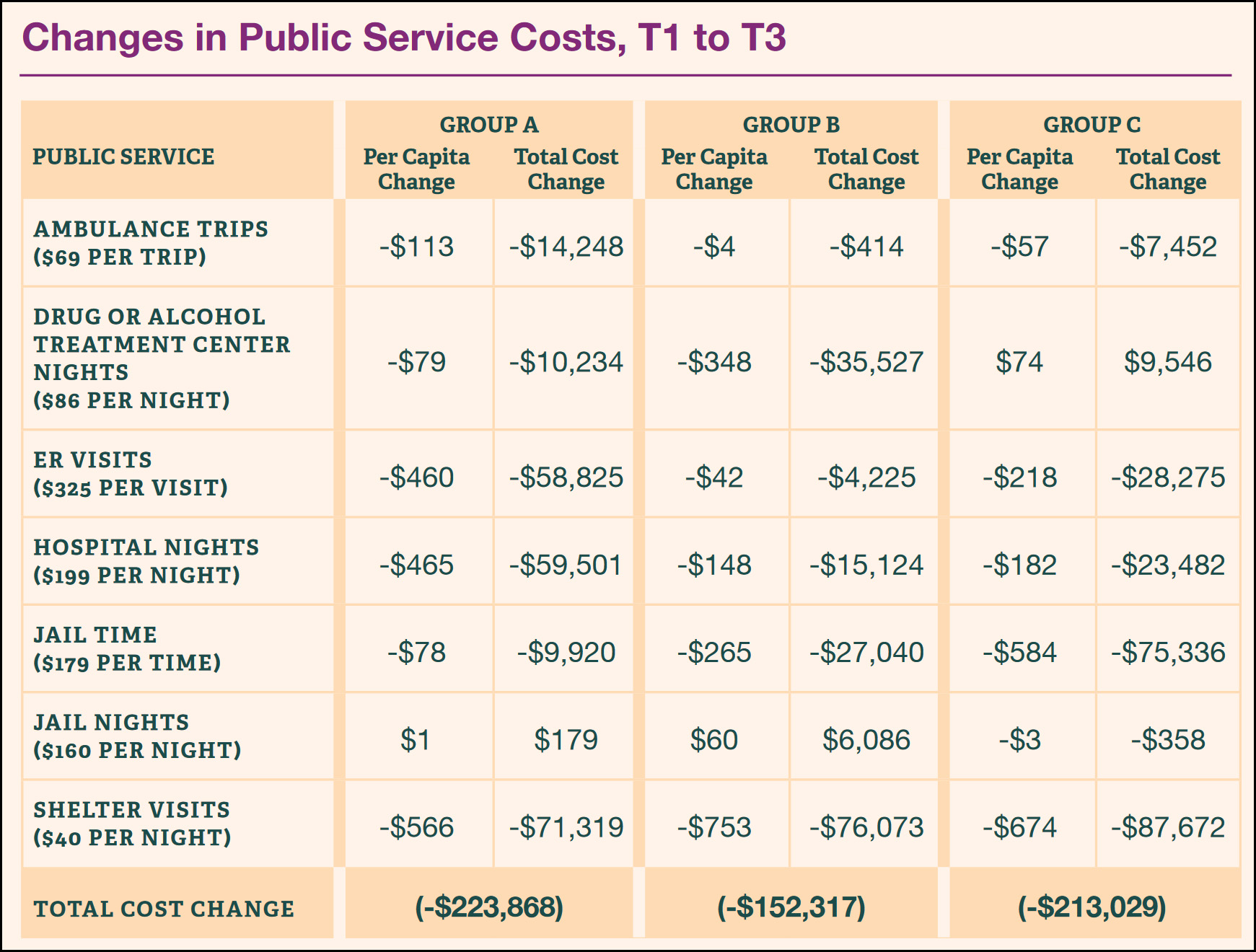 Again, there are two ways of looking at this. One is that the total savings (about $500,000) are nowhere near what the project cost (about $5 million). The other is that giving people $50 per month had a huge impact. But how?
Again, there are two ways of looking at this. One is that the total savings (about $500,000) are nowhere near what the project cost (about $5 million). The other is that giving people $50 per month had a huge impact. But how?
Another oddity is that about a third of the participants dropped out before the project ended. I get that these are homeless people, not all of whom routinely make great life decisions. Still, in Group A it's a no-strings monthly handout of $1,000! But a third of the participants dropped out partway through.
There are other bizarre findings. For example, although the money seems to have had a big impact on housing, it had almost no impact on food security. And mental health deteriorated a bit for all groups.
I don't know what to think. My main interest is that giving people $50 per month seems to have made a substantial difference on some metrics. That can't possibly be because of the money, which is too small to have an impact. Was it simply the effect of being in the project at all? That homeless people who feel cared about are more likely to get off the street?
This really demands some answers. If it holds up, it would be a cheap way of making a huge difference in homelessness, and it would pay for itself. Needless to say, I'm skeptical. But it needs to be followed up.

